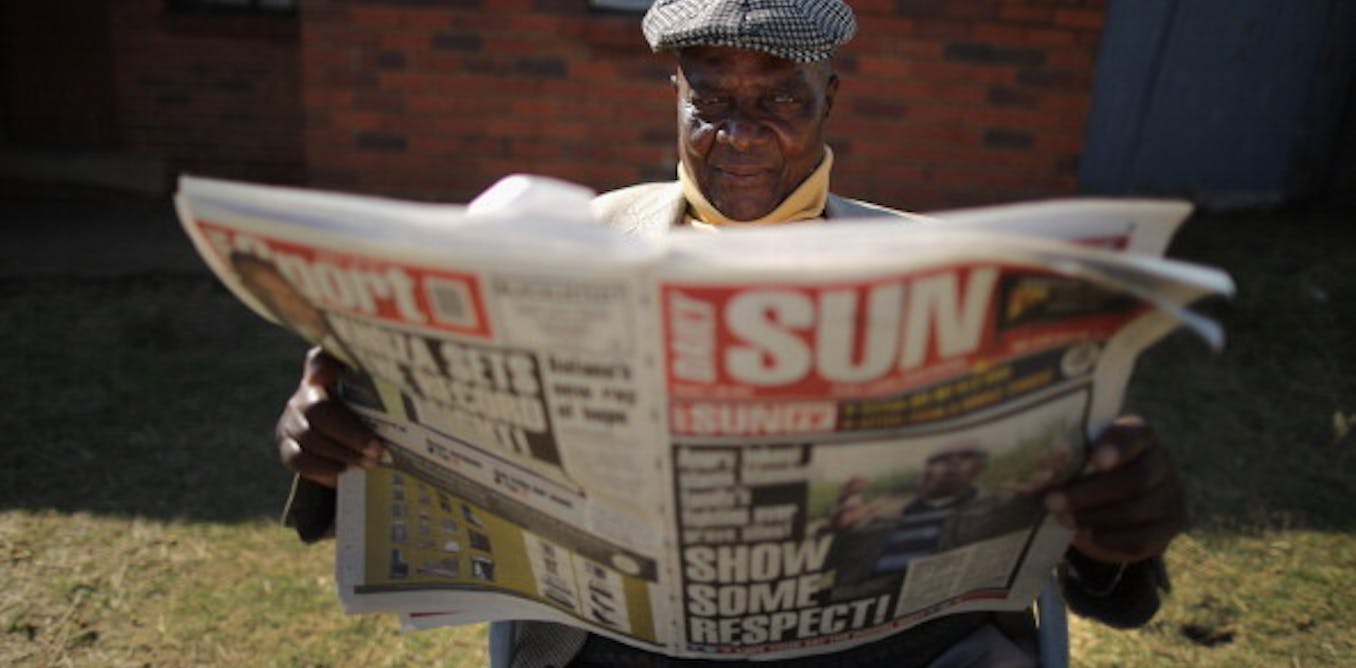South African Current Events Fundamentals Explained
South African Current Events Fundamentals Explained
Blog Article
The Ultimate Guide To South African Current Events
Table of ContentsGetting My South African Current Events To WorkUnknown Facts About South African Current EventsThe Of South African Current EventsLittle Known Facts About South African Current Events.Little Known Facts About South African Current Events.
The Limpopo Mirror is released in Louis Trichardt, a community in the north of South Africa's Limpopo province. Photo: Anton van Zyl Today the Competition Compensation is penetrating just how on-line news is affected by AI chatbots, search and advertising modern technology. The result of the hearings is essential for the future of information reporting in South Africa.
Registrations and sales of private copies were normally implied to cover this, however the real money was advertising and marketing - and for some magazines, like the Cape Argus in Cape Community, the classifieds. South African current events. The marketers sponsored the information, whether in a nationwide everyday, or a small regular paper distributed in a country town
Arounds this income spent for the press reporter to go to the monthly council meeting, cover institution events and go to the court to discover out that could have finished up on the incorrect side of the legislation. Take for instance the Limpopo Mirror, a weekly paper published in Louis Trichardt which one of us, Anton, possesses.
The expense of printing was about 15% to 20% of our turn over. The ad loading (the portion of area committed to advertising as opposed to news) was between 50% and 60%.
A Biased View of South African Current Events
The decline in advertising causes fewer pages in the paper, and less space for information posts. As the web became significantly prominent, papers started releasing their tales online, usually cost-free. Limpopo Mirror was one of the initial papers in the country to release a site with weekly information updates.
In the beginning the majority of us were driven by testing and the rush to be very early adopters so we didn't shed out to the competition. There was no sensible service model. Adverts were unusual and it took a while before this ended up being the main method individuals read their information.
The smart Trick of South African Current Events That Nobody is Talking About
It was convenient, immediate and usually complimentary, specifically as the price of data dropped. At the exact same time, acquisitions of published newspapers began to decline. A few instances: In 2006 the Sunday Times was the largest weekend newspaper in South Africa, with an audited flow of simply over half a million duplicates.
Last year it dropped to below 13,000 sold duplicates and transformed its distribution technique. This has actually visit the website been the fad for most long-running papers on the earth.
The freesheet design does not work well in casual negotiations or rural locations. Bulk declines of newspapers have actually to be dropped off at shopping centres, for example, and wastage of these is high.
To produce a paper has become extremely pricey, which indicates marketing tolls their explanation have had to raise. In the past 2 decades there have actually also been significant modifications in the way customers and sellers find each various other. First to go was the classified areas of newspapers. It was simply much cheaper and much more effective to use websites such as Gumtree, Junkmail or BOB (Bid-or-Buy).
The 7-Second Trick For South African Current Events
While this was all taking place, papers such as the Limpopo Mirror attempted to maintain up. Print flow went down to around the 4,000 mark, the viewers did not move away.
The difficulty was to transform that audience right into a revenue model that would spend for high quality journalism. In South Africa, unlike a few other components of the world, there is not a culture of paying for news. South African current events. Subscription models offered some services in Europe, however here it is currently not a practical option.
Social media keeps reporters on their toes. There is no data to confirm this, it appears to us that mistakes are detected much more quickly, and underhanded behaviour struck on with higher vigour nowadays.
The Basic Principles Of South African Current Events
Why is marketing not functioning for information magazines? Advertising income has been ruined mainly by Google Advertisements and social media adverts.
BNN is a news publisher. Their news stories regularly place extremely on Google Information searches.

Days after Anton's story was published we both browsed "Vhembe" (the region where Anton records from) on Google Information. Usually BNN information stories, plagiarised and apparently reworded by ChatGPT or some other AI chatbot, show up higher in Google search than their real equivalents.
Two various Google products drive this rip-off: Google Look drives visitors to BNN; Google Ads supplies the incentive for BNN's parasitical service model. Up until now in 2024, 72% of GroundUp's web traffic has involved our website by means of online search engine. Find Out More Google is accountable for 99% of that. This is either directly making use of Google Browse or via Google Discover that is mounted on all Android phones.
Report this page